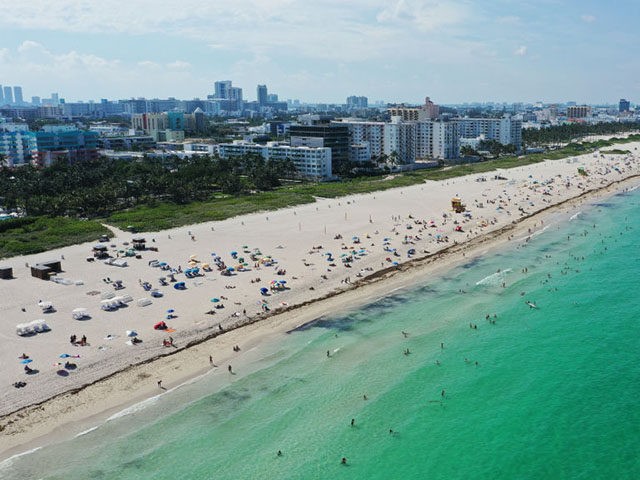Limited “Herd immunity” may be hindering the ongoing spread of coronavirus in Miami-Dade, the hardest-hit county in Florida, the third-most populous state in America, according to public health experts.
Marc Lipsitch, a professor of epidemiology at Harvard University, and Carlos Migoya, the CEO of Jackson Health System, the public hospital network in Miami-Dade, recently told the Miami Herald that partial “herd immunity,” along with other mitigation efforts, could be helping slow the transmission of coronavirus.
Citing the two experts on Friday, the Herald reported:
Social distancing measures, face mask orders, and curfews certainly helped [slow the spread], public health experts say, but so did other factors that they’re still working to understand — specifically, the seasonality of the virus and so-called herd immunity, which occurs when enough people in an area are infected with a virus to nearly eliminate transmission.
The decline in new infections and hospitalizations in Miami-Dade, the largest county in Florida, continued into the weekend.
On Monday evening, the Florida Department of Health reported 146,026 cumulative infections and 2,081 deaths in Miami-Dade.
According to the Herald, the threshold for herd immunity “is still being debated, but is generally thought to require at least a 60% infection rate.”
Over a dozen scientists believe herd immunity can go into effect when 50 percent or “perhaps even less” of the population becomes immune to the virus, the New York Times reported Monday.
The Herald placed the infection rate in Miami at 10 to 30 percent of the population, describing the current situation as “partial herd immunity.”
Studies by county and federal officials that checked for antibodies to the virus in the blood indicate that the actual number of cases in the Miami region is “at least five times higher,” the Herald reported, adding:
If those estimates are correct, that would mean Miami-Dade’s total infection rate could range from 10% to as high as 30% of the county’s population. That’s still far from reaching the threshold [of up to 60%] where herd immunity could reduce transmission to zero.
Undetected infections signal a lower fatality rate because it shows more people are contracting the virus without dying.
The Herald noted that some influential epidemiologists believe a 30 percent infection rate is too high but added that others such as Bill Hanage at Harvard are not “discounting it outright.”
While some analysts assert that herd immunity alone can stop the transmission of the virus, Dr. Anthony Fauci noted last week that if the disease is allowed to spread unabated, the “death toll would be enormous.”
Fauci is the top infectious disease expert in the U.S. government and a member of the White House Coronavirus Task Force.
Florida reportedly added 2,678 infections on Monday, the lowest since June, bringing the total to over 576,000, state data showed. The state has recorded over 9,500 deaths, including at least 87 fatalities on Monday.
The average daily growth of new cases and hospitalizations has been dropping across the state in recent weeks, the COVID Tracking Project noted on Monday evening, echoing data from Johns Hopkins University.
Meanwhile, the average daily new deaths have been mostly increasing. Thre is a lag of several weeks between infection detection and deaths, meaning the fatalities now could the result of cases from before. Florida reported its highest levels of infection in July.

COMMENTS
Please let us know if you're having issues with commenting.